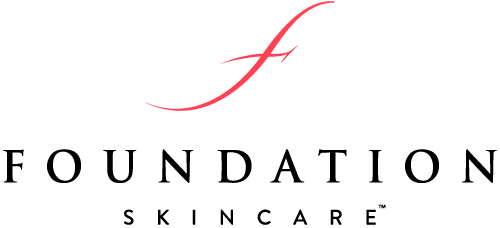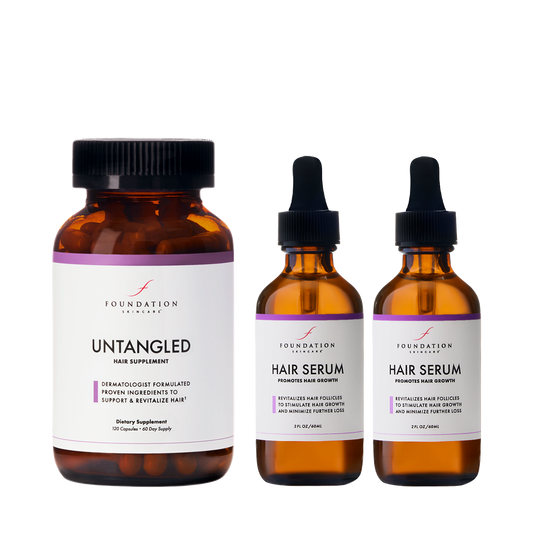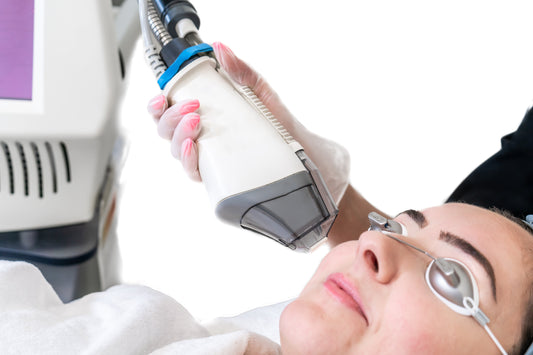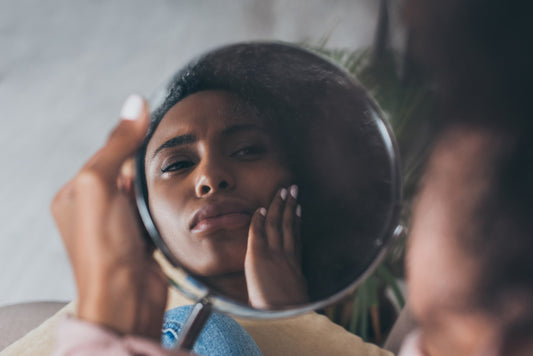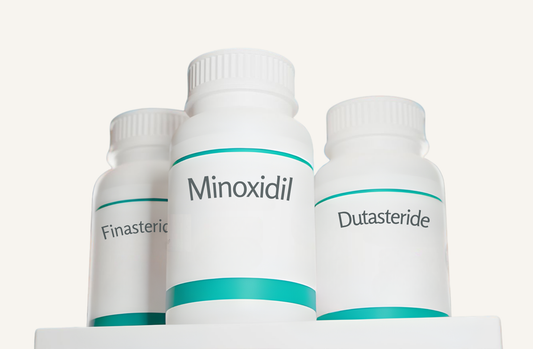Hormones regulate all of your bodily functions, including the health of your skin, hair and nails. And while you may associate certain hormones with specific bodily functions, like estrogen with female reproduction, or melatonin with sleep, most of your hormones actually have multiple roles. As hormones fluctuate, they affect your skin and hair in different ways, maybe leading to acne breakouts in your teenage years or thinning hair in your 50s. Women tend to experience these fluctuations with more frequency due to the menstrual cycle.
Read below to learn more about how hormones affect your skin and your hair, and which products can help you manage the changes that come with hormonal fluctuations.
Your Hormones & Your Skin
Estrogen, which plays a crucial role in female reproduction, affects skin health in both men and women by triggering the production of collagen, elastin, and hyaluronic acid. At the same time, progesterone stimulates oil glands to produce sebum, an oily substance that protects your skin from drying out. When fluctuations or imbalances in estrogen and progesterone occur, due to the menstrual cycle, health conditions, lifestyle choices, or aging, you may experience acne breakouts and/or hyperpigmentation.
While estrogen is typically considered a “female” hormone, androgens like testosterone, dihydrotestosterone (DHT), and DHEA are considered “male” hormones, even though these hormones are produced in both sexes. Androgens, which play a crucial role in the male reproductive system, are also responsible for stimulating sebum production along the cheeks, chin, jawline, and neck in both men and women. Like imbalances in progesterone and estrogen, imbalances in androgen hormones may also contribute to acne breakouts.
In combination with nutrition, thyroid function supports healthy skin and hair. Lower than normal levels of this master hormone lead to dry itchy skin. Thyroid disorder may also be associated with vitiligo, an autoimmune disorder of the skin and hair that results in a loss of melanocytes (the cells that make melanin). Hormones, such as testosterone and estrogen, are also suspected of contributing to this condition.
Other hormones that affect skin health include:
- Melatonin: Though melatonin is primarily associated with sleep, this hormone also acts as a protective agent against UV-mediated damage in the skin due to its antioxidant properties. If you have a melatonin deficiency, your skin cells are more vulnerable to damage.1
- Cortisol: High levels of cortisol, the stress hormone, suppress the immune system. This leads to an imbalance in other hormones like androgens, causing acne breakouts. Stress is also associated with psoriasis, melasma, and rosacea and is known to contribute to premature aging, especially if it interferes with sleep.
Does hormonal imbalance cause skin darkening?
Hormone fluctuations may cause conditions such as hyperpigmentation and melasma, which generally appear as brown patches on the face. These conditions may intensify during pregnancy or while taking birth control pills, hormone replacement therapy, or certain medications.
UnTangled Essentials Kit
• Engineered to work in tandem
• Visibly fuller hair in 90 days
Your Hormones & Your Hair
While imbalances in estrogen and progesterone exacerbate acne and hyperpigmentation, they also contribute to hair loss or excess hair growth on the face (hirsutism). Similarly, imbalances in androgen hormones that contribute to acne breakouts can also affect hair growth and loss (androgenic alopecia).2
Low thyroid hormone levels can also lead to thin, brittle hair and nails. One tell tale sign of a thyroid disorder is loss of the eyebrows, which should prompt a trip to your dermatologist.
And just as melatonin affects sleep and cell repair in the skin, it may also affect the hair growth cycle. The right levels of melatonin in the body help you sleep better and prevent oxidative damage that leads to hair loss.3 Similarly, too much cortisol in the body may lead to acne breakouts as well as hair loss.4
Top Products to Help These Symptoms
Whether you have a hormonal disorder or you’re simply trying to manage the symptoms that come with normal hormonal fluctuations, the following products can help protect your skin and your hair:
For Skin:
An effective remedy to improve hormonal acne, hyperpigmentation, and melasma, our Azelaic Acid Cream kills acne-causing bacteria and soothes the skin while reducing redness and inflammation, diminishing dark spots, and brightening the skin.
A combination of natural herbs and nutritional supplements that have shown efficacy in improving the outcome of melasma and vitiligo patients undergoing treatment with their dermatologist.
Formulated with recommendations from the National Psoriasis Foundation and board-certified dermatologists, MTXpert is designed to supplement patients while undergoing methotrexate and other psoriasis treatments with a licensed dermatologist.
For Hair:
This balanced nutritional supplement provides the essential building blocks for hair growth and ingredients proven to help prevent hair loss often associated with aging.
Our Hair Serum triggers the production of hair growth factors and stimulates hair follicles to encourage new growth and curb hair loss, improving hair health in as little as three months of use.
While we can expect our hormones to change at different points in our lives, in some cases, imbalances are a sign of an underlying health condition. If this is the case, your hair and skin may be trying to tell you something. Healthy lifestyle habits like eating well and managing your stress levels can help restore some balance, but your doctor may have other recommendations on how to address more serious hormonal imbalances.
Using products like the ones mentioned above will help preserve the appearance of your skin and hair while you take charge of your hormonal health. Find out more about the Foundation Skincare collection.
References:
-
https://www.ncbi.nlm.nih.gov/pmc/articles/PMC3583885/
-
https://www.ncbi.nlm.nih.gov/pmc/articles/PMC7432488/
-
https://iphr.mosuljournals.com/article_50259.html
-
https://jddonline.com/articles/stress-and-the-hair-growth-cycle-cortisol-induced-hair-growth-disruption-S1545961616P1001X/
